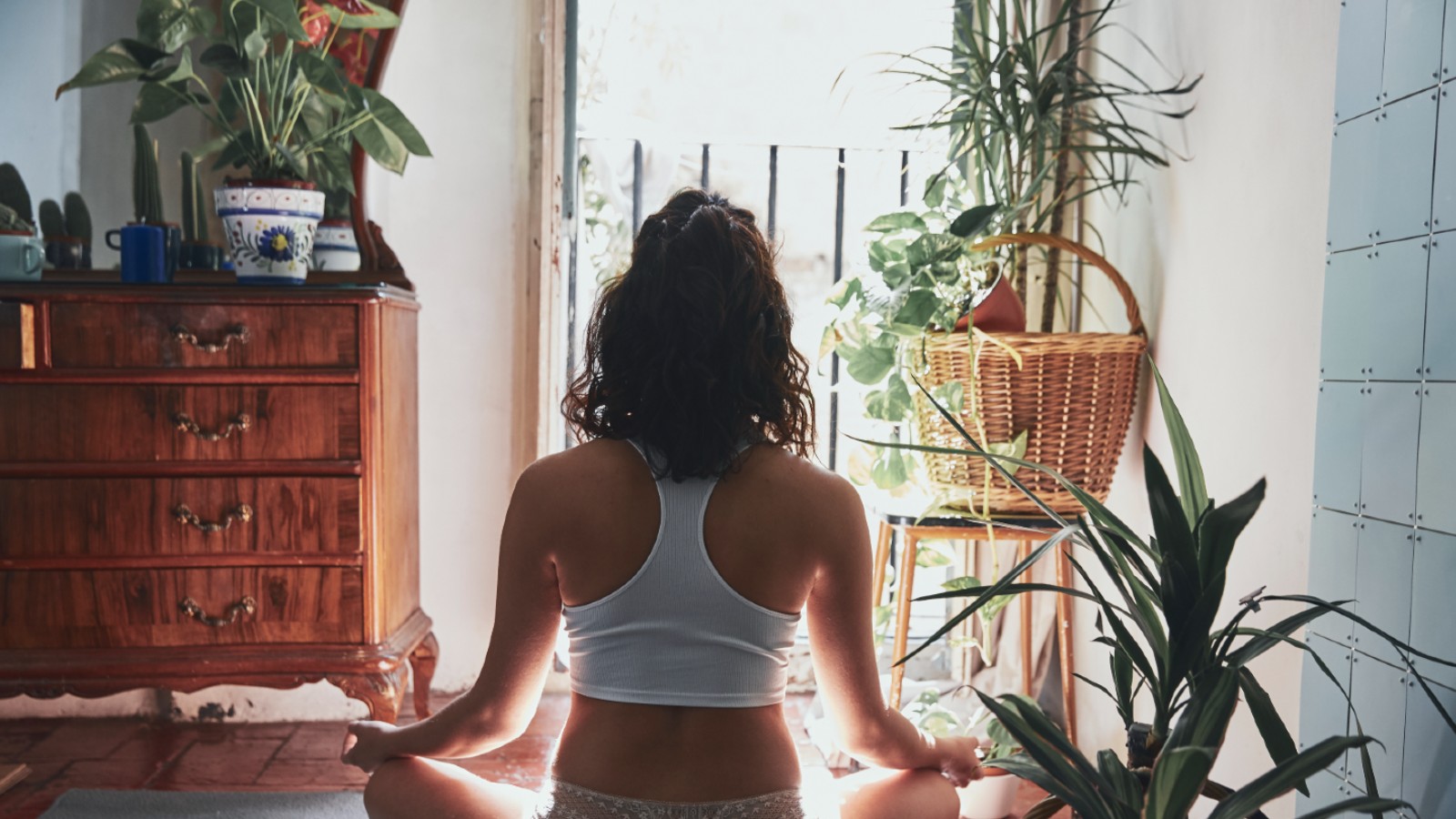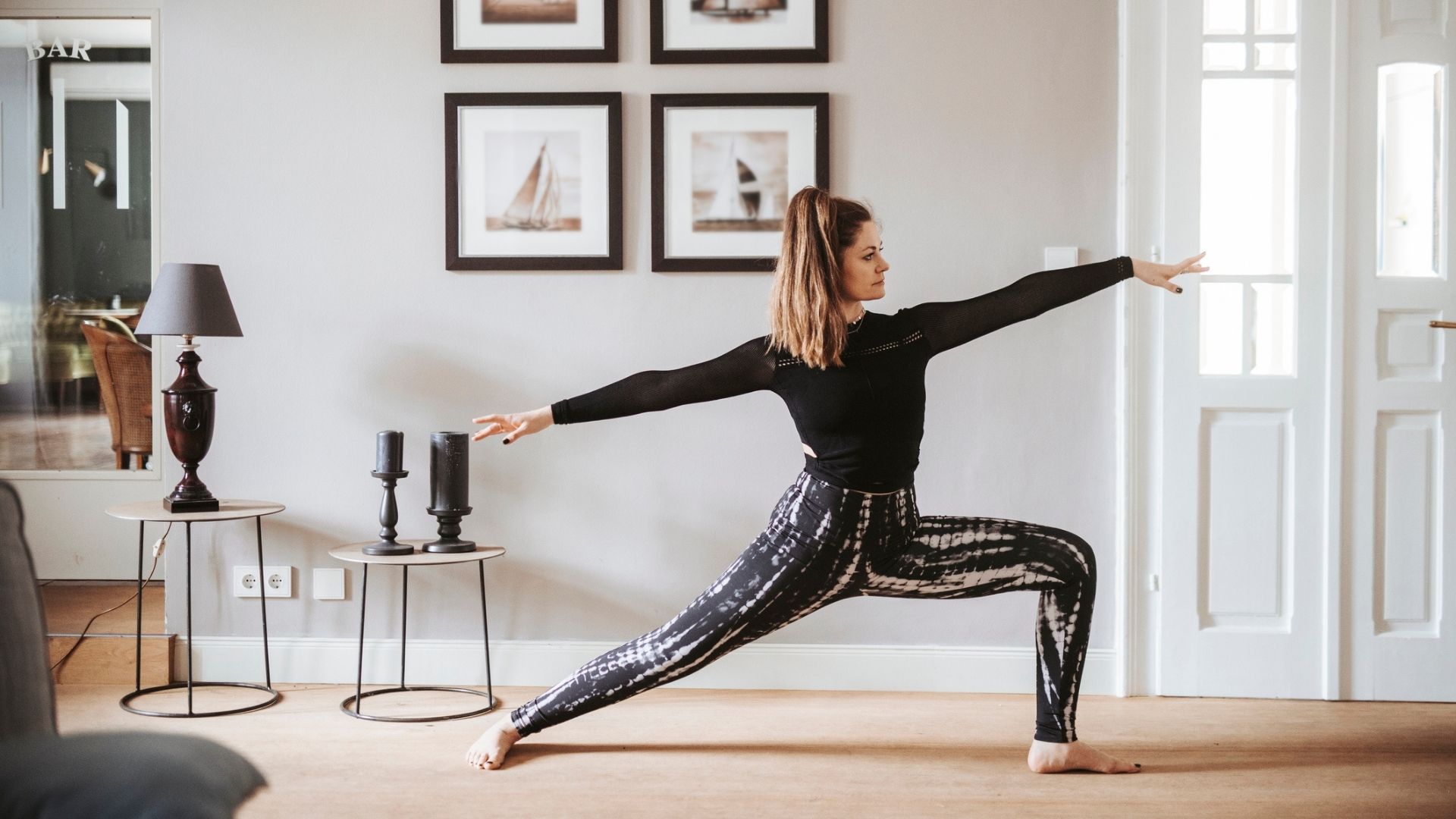Are we experiencing collective trauma? How the mental health impact of the pandemic lives on
We ask the experts to reveal the ways in which collective trauma is manifesting—two years after the Covid-19 virus first upended lives...

This piece is part of our Lost Years series, where we investigate the time since the COVID-19 pandemic was declared by WHO on March 11, 2020. Did we collectively change, how and will we ever go back? How has this time affected our relationship with work, our loved ones, dating and even entertainment? And can we take action to reclaim what we may have lost?
Cast your mind back to two years ago, on March 11, 2020. It was the day the World Health Organisation (WHO) officially declared the Covid-19 virus a pandemic, and back then we couldn't have anticipated the tumultuous, heartbreaking times that lay ahead. Yet, in the 24 months since—when home decor, TikTok and working from home clothes soared in importance—our lives have been upended. Changing work lives, prohibited travel and, of course, loss of loved ones have thrown our daily routines off their axis and triggered us to re-evaluate our life choices.
On the 'anniversary' of the moment the world changed forever, we're taking a look at how it's changed us too. Earlier this month, research shared by the WHO revealed that the pandemic has been behind a 25% rise in anxiety and depression worldwide. Because, while normality is seemingly returning at pace—from easing restrictions to the fashion world zig-zagging between New York, Milan and Paris—the impact is lasting. In this latest installment of our mini-series The Lost Years, we're exploring whether many of us are potentially experiencing collective trauma. A delayed response to months of being forced to live—to various degrees—in a wholly unprecedented way.
We've called on the experts to explain if we are, as a large human community, still reeling from the impact together. How it's entirely understandable that the shock of the past two years might have not yet faded for you, and why the after-effects may only be manifesting for you now—compounded by fears that the next big 'crisis' is on the horizon, from climate change to the surging cost of living and possibly World War Three (by the way, here's how to help Ukraine). With this in mind, we've also compiled a toolkit for recovery. Because while so many events may be out of your control, you can rediscover habits for happiness and heal...
What is collective trauma, and are we suffering from it post-pandemic?
“One of our primary needs is for safety, and the pandemic put that in jeopardy with very little time to prepare," explains Sharon Thompson, a mindset coach, clinical hypnotherapist and founder of meditation club The Quiet Room. "Collective trauma is the widespread emotions felt by many that are linked to distressing events—when something happens that rocks our foundations and our norms, then it can be the outcome."
Sarah Cox, therapist and founder of Zephorium, agrees: “Whether we like it or not, we are a herd of humans and absolutely everything that happens on this little planet is impacted by everything and everyone else. Collective trauma is a very real experience because energy is so easily transferred from one to another.”
If you feel like you are a different person to your pre-pandemic self, it’s understandable. “Our collective personality has gone through the wringer over the last couple of years, thanks to things like fear, illness, lockdowns and money worries,” explains Cox. "Letting go is never easy for humans, because we like to think we are in control, but many have had to let go of the steering wheel—which can be a frightening experience."
How might collective trauma manifest for you?
“Some people isolate from others and start to withdraw, cocooning themselves in a world of their making," says Cox, of how people's response varies greatly. "Others are desperate for attention and soothing and want peers to re-enforce their beliefs around a situation.” She lists sleeplessness, anxiety, illness, stress, exhaustion, anger, depression as being among the many common signs.
Thompson adds: "Some may worry about situations that never used to bother us, feel obsessive over certain aspects of life such as hand washing, cleanliness or checking the news. Others will likely feel symptoms of depression which could be shown by an unwillingness to get on with the day, procrastination, exhaustion, a desire to stay in the relative safety of home. There are many, also, who may experience anger and frustration to a higher level than before." She notes that for those who were struggling with their mental health before the pandemic, the effects could be even more severe.
The ramifications are significant for health and wellbeing. “Collective trauma activates the part of our brain designed to protect us—the amygdala which triggers fight, flight or freeze,” explains Thompson. “These are useful responses for sudden, immediate threats to our safety, however when activated for long periods of time they can have a very detrimental effect.” Cox agrees, noting that prolonged fear can have powerful consequences on the body. “Living at even low-grade stress over long periods can become habitual,” she explains. "Then, once the brain synapses have wired and fired the fear pattern for long enough, we stop questioning it and live in that constant state of anxiety.”
There's evidence that elevated levels of the stress hormone cortisol for lengthy periods can cause everything from weight gain, acne and hair loss to severe fatigue, headaches, high blood pressure and difficulty concentrating. In the long term, it has been linked to health conditions like dementia and heart disease.

- Therapy vs counseling: what's the difference?
- Why do I have anxiety at night?
- How to stop drinking alcohol, for glowy skin and a better mood
If you're doing just fine right now, when might the post-Covid after-effects hit you?
"At the beginning of the pandemic, we thought it would last a matter of weeks," says Thompson. "This took a lot for us to get our heads around, but many adapted well since as human beings we are born able to adapt and come up with solutions to situations." This could explain why you have been able to stay largely resilient throughout such a turbulent period. "However, as time goes on and the changes continue over a number of months and years then we can start to feel knocked by each blow," she adds. "That immediate ability to respond to stress becomes chronic stress, and our coping abilities are far reduced.”
It is possible, even, that you’re only feeling the effects now—just as life is returning to relative familiarity. “Delayed trauma is common,” says Cox. “Once the danger has passed the adrenaline eases and the body comes out of fight or flight. We can then get hit with the shock of what just happened. Again, it’s the body’s way of getting us out of a dangerous situation before we can collapse and recover in a safe place. This delay can even be several years or decades after a traumatic event.”
How to deal with collective trauma— a wellbeing toolkit

“Our ability to cope with stress can be the defining factor of who we are and how we experience life,” says Thompson. “This is why we should prioritize looking after our minds, just as much as we do with looking after our bodies. If trauma hits and your mind is already feeling chaotic, then you're likely to be hit harder. If you are in a good place then you will be far better able to deal with whatever comes your way.” There are many tools you can use to strengthen your mind, explains Thompson:
- Movement: “Exercise is a release of fear and tension," she says. "Whenever you exercise you release positive chemicals within you which naturally help you to cope better."
- Meditation: “It is a fantastic way of teaching yourself that you can step away from your thoughts and not be defined by them," she explains. "You can see your thoughts as little stories that pass through your mind, and that you have the choice of which you pay attention to." Try these meditation apps if you don't know where to start.
- Gratitude: "This can also help you to see that there are still plenty of good things all around you and can help you reduce the fear held in your mind,” she notes.
- Information: Be aware of what you consume. “Limiting external factors such as the news, sad films or upsetting books is a very fast way to help your mind—and in the twenty-first century is almost vital,” she points out. “The world is full of information and we must see ourselves as the gatekeepers of our mind."
- Stability: “Bring in some regular habits such as reading before bed, going for a run every Tuesday and Thursday, working from home on set days, watching uplifting TV at a regular time and sticking to particular even mealtimes,” she recommends. “Give your mind some foundations that it can rely on, and you'll find that you are less impacted by outside events.”
- Talk: It can also be helpful to speak to someone. “There are plenty of forms of support out there from talking to your doctor or a therapist, as well as finding a local mental health group that you can get involved with,” she advises. “Recognize that this has been an unprecedented two years and a little support now could really help future you.”
Cox suggests it can be helpful, where possible, to reframe things. “I feel this is a time for huge personal growth on our planet,” she explains. “We are being forced to re-think what is important and what we want. Self-care is essential as is kindness, pacing yourself, not over-committing and slowing right down. Being in nature is the medicine we all seek."
It can also be helpful to remember that suffering fallout from unpleasant global events—be that a pandemic or, even, war—is not inevitable. “Even in times of stress for a country or the planet, there are always people who are thriving even in that environment,” points out Cox. “Usually these are the people who have mastery over their body and minds. The challenge for humans is, as we go through life, to stay calm and centered." She adds: "Staying present and focused, one day at a time, is all we can do.”
Lauren is a freelance writer and editor with more than six years of digital and magazine experience. Most recently, she has been the Acting Commissioning Editor of Women's Health—where she co-produced the Going For Goal podcast—and has previously also written news and features for titles including The Telegraph, Grazia, Stylist, Dazed, The Sun's Fabulous, Yahoo Style UK and Get The Gloss. She covers all aspects of lifestyle, specializing in health, beauty, and travel. Can't live without: oat milk lattes, new podcast episodes, long walks, and great skincare.